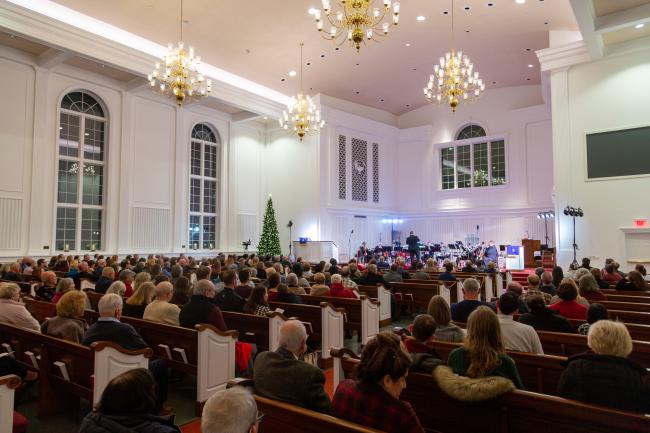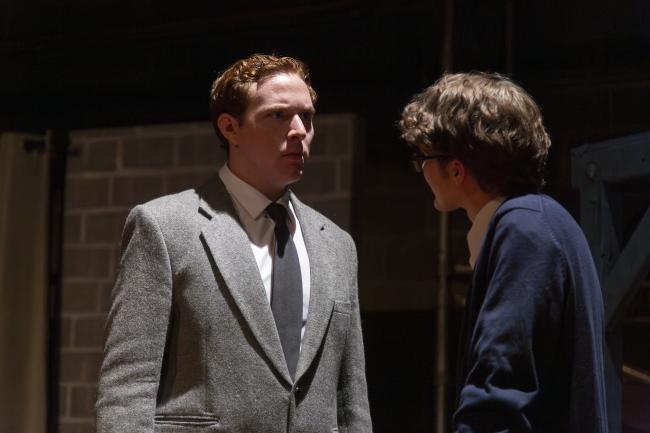The Waynesburg University Stover Scholars presented a screening of their video production, “The Battle of the Bridges: Charles River Bridge v. Warren Bridge,” Thursday, Sept. 14, in the Goodwin Performing Arts Center in celebration of Constitution Day.
I commend the Stover Scholars for again dramatizing a major constitutional theme, this year the interpretation of vested rights, contracts and property rights under the U.S. Constitution in relation to community values."
“The Battle of the Bridges: Charles River Bridge v. Warren Bridge” drama production centers around the 1837 U.S. Supreme Court case, Charles River Bridge v. Warren Bridge, in which the Justices decided that the Massachusetts charter over Boston’s Charles River for a ferry service, which was eventually made into a grant for the Charles River toll bridge in the late Eighteenth-Century, was not exclusive and did not preclude another grant to build a nearby bridge, the Warren Bridge, which would eventually be free.
“I commend the Stover Scholars for again dramatizing a major constitutional theme, this year the interpretation of vested rights, contracts and property rights under the U.S. Constitution in relation to community values,” said Dr. Lawrence M. Stratton, professor of ethics and constitutional law and director of the Stover Center for Constitutional Studies and Moral Leadership. “Moreover, the drama ‘The Battle of the Bridges’ fulfills the purpose of Constitution Day, which is to commemorate the Constitutional Convention’s Sept. 17, 1787, approval of the U.S. Constitution.”
This year’s drama was written, directed and filmed by members of the Stover Scholar Constitution Day Committee, chair Ethan Lown and committee members Kimberly Trump, Kristie Faber and Joshua DeFries. The film was produced by Stover Scholar alumnus Timothy J. DeNofrio, who recently received his J.D. from the New England School of Law in Boston.
“One of the most intriguing aspects of the Charles River Bridge case is the role of public policy,” said Lown, a senior political science major. “Should the happiness and convenience of the community be taken into consideration when making legal decisions? In this case, the Supreme Court decided yes. Also, the case discusses how contracts should be interpreted and how human progress evolves.”
As chair of the Constitution Day Committee, Lown took the lead in planning, writing and filming the production. With the help of Trump, Faber and DeFries, the Committee worked together to construct a script for the drama.
“I’ve always enjoyed being creative, and getting to do that in a way that impacts the Stover Program is so rewarding,” said Trump, a junior psychology major. “We always have such a supportive committee that it feels comfortable to put any ideas on the table, and we work together to find the ones that best fit. I’m very happy that we chose the format we did for this show; we had a lot of fun writing it.”
This year’s production is a continuation of annual Constitution Day productions by the Stover Scholars in which they choose a Supreme Court case or a constitutional topic, and research, write and perform a drama bringing that case or constitutional theme to life.
*This presentation is student-produced content.


